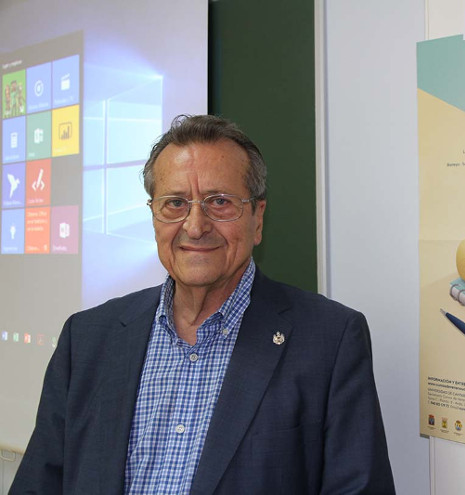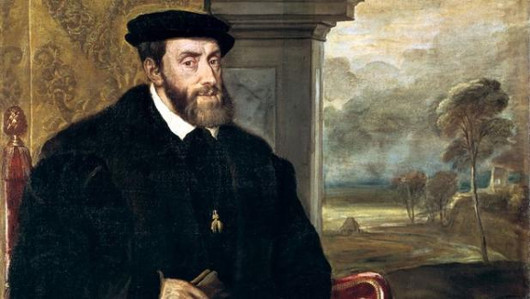
Dr. Francisco González de Posada
Francisco González de Posada, president of the Academy of Sciences, Engineering and Humanities of Lanzarote and regular contributor of the Royal European Academy of Doctors-Barcelona 1914 (RAED), published on October 1 in “Cuadernos de Historia Moderna” (Notebooks of Modern History) of the Complutense University of Madrid the article “Carlos V (1500-1558) y la ciencia” (Charles V (1500-1558) and science), where he describes from a sociological point of view the development of science, scientists and society in the time of the Spanish Emperor.
The academician places at the centre of his study the five scientists who mark a before and after in this Renaissance period, breaking with the scholastic thought and opening new ways in the western thought while waiting for the Galilean scientific revolution: Leonardo da Vinci, Nicolaus Copernicus, Pedro de Medina, Andrés Laguna and Juanelo Turriano. “With this panorama will be novelties in the historical process of this new era the social ascent of inventors, the development of applied mathematics, progressively integrated in the Court and in urban environments, and a gradual growth of the relationship between innovation and power”, says the author.

Carlos V Emperor
As a new line of thought that connects the old and new way of seeing and analysing reality, González de Posada points out humanism, debtor of the Christian tradition and, at the same time, the framework of free will and individual freedom, fundamental for the science development. In the social context, the author places as elements that contributed to this paradigm shift the increasing transmission of knowledge, the growth of trade, navigation towards new worlds and the development of a bank that contributed financial resources to the new transatlantic adventures and opened the era of economic science.
Likewise, these advances would not be understood without the dissemination of the printed book. “After the editions started in the second half of the 15th century, the book would reach a remarkable spread. Beyond the Bible and religious books, a significant example was the case of ‘Almagest’, an astronomical treatise of the 2nd century of our era written by Claudius Ptolemy, who would be printed in Latin in 1515 in Venice and in 1538 in Greek in Basel. The printing press would facilitate the expansion of a growing scientific culture”, says the academician.




